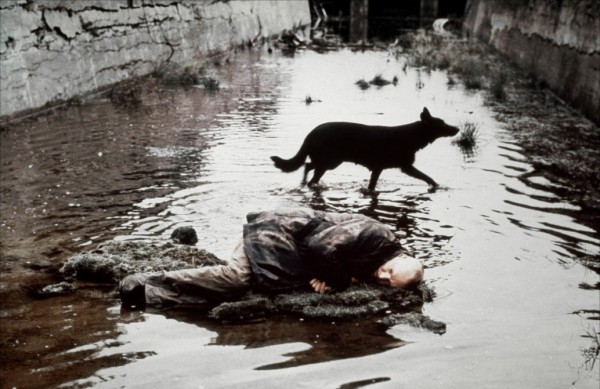Formerly Anonymous Review: Zone
 |
Zone
by Mathias Énard
Open Letter Books, 2010
517 pages / $16.95 buy from Open Letter Books
Rating: 8.0
|
A French-born Croatian boards a train in Milan. He stows an overfull suitcase beside his seat. He’s hungover, buzzed on amphetamines, and pursued by ghosts. Outside, it’s raining and cool. As the train leaves the station, this Croat, Francis Servain Mirković, an analyst in the French Intelligence, begins to mine the incriminating documents he carries. And as he does, he begins to melt into the Zone. The following ten chapters, spanning 500 odd pages, unravel in a single breath.

Mathias Énard, the brilliant French novelist, and winner of the Prix Decembré, employs no periods or paragraph breaks in his astounding Zone, published in 2010 by Open Letter Books. And while the novel is framed by this train ride (Milan to Rome), the inevitable plotlines recall the desperate noir of Jim Thompson, with more than a hint of László Krasznahorkai.
Énard’s “Zone” is vaguely the territory between Tangier and Beirut, (“Ceuta, Oran, Algiers, Tunis, Tripoli, Benghazi, Alexandria, Port Said, Jaffa, Acre, Tyre, Sidon,/ or else Valencia, Barcelona, Marseille, Genoa, Venice, Dubrovnik, Durres, Athens, Salonika, Constantinople, Antalya, Lattakiyah,/ or else Palma, Cagliari, Syracuse, Heraklion, Larnaka”) otherwise called the Mediterranean world, “A complex of seas…broken up by islands, interrupted by peninsulas, ringed by intricate coastlines” (Fernand Braudel); and definitively a landscape of despair, “here the mud is made from our tears.”(Charles Baudelaire)
As the spy retrieves his documents, Énard charts the history of twentieth century authoritarian violence across the Mediterranean/ Middle East. And from Ustashi’s, to Falangists, to the Baathists of Aleppo, this history is brutal.
Although Énard lays down boundaries and identifies this Zone of despair, he does not presume exceptionalism.
Instead, he emphasizes the extent to which the violence across the Zone conforms to a global system of violence, specifically highlighting the wars in the Balkans, Lebanon, and the occupied territories. Like J.G. Ballard’s terrific War Fever, he identifies these proxy wars as a predictable symptom of the current world order. Its no coincidence they play out far from the centers of global power. His observations echo Baudrillard, who famously suggested the prisons complexes of the United States obscure the inherently carceral character of contemporary American society.
When you knock around a lot of libraries, you end up reading a lot of the same. Zone is not that. Like Krasznahorkai, or Danielewski, Énard moves in darkness and depth, and he comes up with something exceptional.
October 14th, 2014 / 12:00 pm
